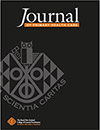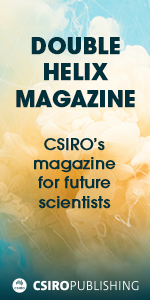HC24044 Full Text | HC24044PDF (655 KB) Open Access Article

Journal of Primary Health Care
Volume 16 Number 1 2024
HC23044Utilisation of in-consultation supervisor assistance in general practice training and personal cost to trainees: a cross-sectional study

What is already known: Within the ‘apprenticeship-like’ model of general practice training operating in many countries, the trainee’s in-consultation recourse to real-time supervisor assistance or advice is considered to be essential for both patient safety and trainee learning. Some trainees, however, may feel uncomfortable presenting their concerns or questions to the supervisor in the patient’s presence and/or believe that patient impressions of their competence will be adversely affected by calling on supervisory assistance. What this study adds: Contrary to predictions of utility-based models of behaviour, we found no association of trainees’ documented in-consultation help-seeking with either (i) their beliefs about the impact of help-seeking on patient impressions of their competence, or (ii) their levels of comfort/discomfort presenting within the patients’ hearing.
HC23044 Abstract | HC23044 Full Text | HC23044PDF (721 KB) | HC23044Supplementary Material (1.2 MB) Open Access Article
HC22158Perceptions of the effectiveness of using patient encounter data as an education and reflection tool in general practice training
 , Michael Bentley
, Michael Bentley  , Dominica Moad
, Dominica Moad  , Alison Fielding
, Alison Fielding  , Amanda Tapley
, Amanda Tapley  , Mieke van Driel
, Mieke van Driel  , Andrew Davey
, Andrew Davey  , Ben Mundy
, Ben Mundy  , Kristen FitzGerald
, Kristen FitzGerald  , Jennifer Taylor
, Jennifer Taylor  , Racheal Norris
, Racheal Norris  , Elizabeth Holliday
, Elizabeth Holliday  and Parker Magin
and Parker Magin 
What is already known: In-practice learning is central to GP registrars developing competencies within the apprenticeship-style model of GP training. Feedback followed by reflection is important for GP registrars’ in-practice learning. Patient encounter tools can provide clear in-practice feedback to registrars, yet little published evidence is available to support the use of such tools within general practice training. What this study adds: This study demonstrates that patient encounter tools, such as ReCEnT, can be useful for registrars’ self-reflection on their clinical practice and can lead to changes in practice and learning approaches. The relative lack of engagement between numerous registrars and their supervisors or MEs on ReCEnT feedback reports indicates a missed opportunity for supported reflection and suggests more work is needed on effective engagement for ReCEnT to be used as an assessment for learning in general practice training.
HC22158 Abstract | HC22158 Full Text | HC22158PDF (798 KB) | HC22158Supplementary Material (284 KB) Open Access Article
What is already known: There is a recognised shortage of dermatologists in New Zealand, thus innovative strategies are required to improve access to specialist care. Collaborative services between specialists and general practitioners already exist, but have not been widely utilised in the field of dermatology. What this study adds: This collaborative dermatologist and general practitioner clinic model is the only one of its kind in New Zealand. It acts as an effective triage service, as the majority of presenting patients do not require further referral to secondary care.
HC23122 Abstract | HC23122 Full Text | HC23122PDF (769 KB) Open Access Article
What is already known: Limited evidence suggests there are barriers to accessing psychostimulants for those with ADHD. This leaves many without the option to access and use the most effective medications. What this study adds: This research indicates that the use of psychostimulants is low. Although some fraction of the treatment gap might be explainable by other reasons, barriers to access remains significant.
HC23126 Abstract | HC23126 Full Text | HC23126PDF (719 KB) Open Access Article
What is known about the topic: There has been a general expectation internationally that GPs are to play a central role in the collection of family health history as part of precision medicine. However, for more than 20 years it has remained widely reported as being both poorly and infrequently undertaken. What this study adds: Family health history information was used to varying degrees – risk ascertainment, patient engagement with a diagnosis, social context and building relationships. Perceived low quality (unreliability) of family health history information and accessibility issues are potential indicators of current limits of family health history, especially as a part of precision medicine. An opportunity exists to establish specific roles to enable socio-culturally appropriate collection, storage and use of family health history information.
HC23055 Abstract | HC23055 Full Text | HC23055PDF (739 KB) | HC23055Supplementary Material (1.4 MB) Open Access Article
HC23082Exploring how a patient encounter tracking and learning tool is used within general practice training: a qualitative study
 , Jennifer Taylor
, Jennifer Taylor  , Alison Fielding
, Alison Fielding  , Andrew Davey
, Andrew Davey  , Dominica Moad
, Dominica Moad  , Mieke van Driel
, Mieke van Driel  , Parker Magin
, Parker Magin  and Linda Klein
and Linda Klein 
What is already known: In Australia’s apprenticeship-style model of GP training, in-practice learning and experience for GP registrars is central to the development of their confidence and clinical competencies. The Registrar Clinical Encounters in Training (ReCEnT) project is a patient encounter tracking and learning tool (PETAL) that has been shown to provide opportunities for GP registrars along with their supervisors and medical educators (MEs) to reflect on registrars’ clinical practice and identify their learning needs, leading to change in practice. There is limited qualitative literature on how registrars, supervisors and MEs describe the utility of workplace-based assessment tools such as PETALs, particularly within proposed programmatic assessment frameworks. What this study adds: This study builds on previous survey findings, providing greater depth of understanding from the perspective of GP registrars, supervisors and MEs regarding how ReCEnT can be useful as an educational and reflective PETAL tool for GP registrars during their training. Meaningful engagement between GP registrars and their supervisors and MEs enables ReCEnT to be more effective as a tool for learning in general practice training. More work needs to be done on how PETALs, such as ReCEnT, best fit within a programmatic assessment framework for general practice training.
HC23082 Abstract | HC23082 Full Text | HC23082PDF (814 KB) | HC23082Supplementary Material (441 KB) Open Access Article
What is already known: Diabetes-related foot problems affect around one-third of people with diabetes in New Zealand. Early identification of the at-risk patient is crucial in the prevention of diabetic foot ulcers. Annual diabetes reviews (ADRs) delivered by general practice teams that include a comprehensive foot evaluation and risk categorisation are recommended by local and international guidelines.
What this study adds: People with type 2 diabetes identified important barriers to attending ADRs several of which are amenable to change. Participants provided suggestions on how to improve the delivery of the ADR in primary care, including the utilisation of Māori tailored models of care such as the Te Whare Tapa Whā model and Māori support workers.
HC23081 Abstract | HC23081 Full Text | HC23081PDF (750 KB) | HC23081Supplementary Material (1 MB) Open Access Article
HC23141Are patients with type 2 diabetes in the Waikato District provided with adequate education and support in primary care to self-manage their condition? A qualitative study
 , Kimberley Norman, Shemana Cassim, Valentina Papa, Rawiri Keenan
, Kimberley Norman, Shemana Cassim, Valentina Papa, Rawiri Keenan  , Ryan Paul and Lynne Chepulis
, Ryan Paul and Lynne Chepulis
What is already known?: Diagnosis of type 2 diabetes is a challenging time, where healthcare professionals must consider health literacy, previous medical history, whānau, finances, and psychosocial factors. Current research states the treatment in primary care is suboptimal, compounded by clinical inertia, and that appointment times of 15 min are typically not long enough for sufficient diagnosis and treatment. What this study adds: The current system of educating and supporting patients in primary care is viewed by patients as unsuitable in terms of appointment times, education, and communication. Graphic, conversational, or imagery-based education methods are preferred to pamphlets, and written sources of information that are tailored to the individual are needed, and must reflect cultural context. More support is required in terms of healthcare practitioners’ relationships and culturally safe and compassionate patient care.
HC23141 Abstract | HC23141 Full Text | HC23141PDF (902 KB) Open Access Article
HC23012Determinants of cancer screenings participation in Queensland: a scoping review
 , Kamal Singh, Tam Nguyen
, Kamal Singh, Tam Nguyen  , Brian Kurth, Thuc Phan
, Brian Kurth, Thuc Phan  , Ashleigh Nelson, Renata Danisevska and Tony De Ambrosis
, Ashleigh Nelson, Renata Danisevska and Tony De Ambrosis
What is already known: Cancer screening programs (cervical, breast, and bowel) participation is generally low, especially in regional and rural areas in Queensland, Australia. What this study adds: This scoping review provides a suggested approach to understanding the known determinants of cancer screening participation to help influence the uptake among target populations.
HC23012 Abstract | HC23012 Full Text | HC23012PDF (985 KB) Open Access Article
What is known about the topic: This rapid review offers an evidence‐based synthesis of the existing literature concerning the evolving role of nurse prescribers. What this study adds: It provides valuable insights for the primary care interprofessional team, underscoring the potential of nurse prescribing as a solution to enhance diabetes care.
HC23121 Abstract | HC23121 Full Text | HC23121PDF (992 KB) Open Access Article
What is already known: Keratinocytic cancers are increasing worldwide. Teledermatology is a valuable tool for communication between general practitioners, dermatologists, and plastic surgeons. What this study adds: It describes the teledermatology diagnosis of 358 suspected keratinocytic cancers after e-referral, and pathways to excision by general practitioners, dermatologists, and plastic surgeons.
HC23098 Abstract | HC23098 Full Text | HC23098PDF (805 KB) | HC23098Supplementary Material (283 KB) Open Access Article
HC23118De-prescribing in primary care: the clinical, ethical and psychological considerations
HC23118 Full Text | HC23118PDF (663 KB) Open Access Article
HC23114 Full Text | HC23114PDF (641 KB) Open Access Article
HC24011New Zealand’s slow uptake of carbohydrate-reduction in type 2 diabetes management
HC24011 Full Text | HC24011PDF (638 KB) Open Access Article
HC24042 Full Text | HC24042PDF (630 KB) Open Access Article
HC24035Primary care clinicians should proactively take up latest AI-based technology: Yes
HC24035 Full Text | HC24035PDF (646 KB) Open Access Article
HC24033Primary care clinicians should proactively take up latest AI-based technology: No
HC24033 Full Text | HC24033PDF (626 KB) Open Access Article
HC24043 Full Text | HC24043PDF (627 KB) Open Access Article
HC23172 Full Text | HC23172PDF (716 KB) Open Access Article



